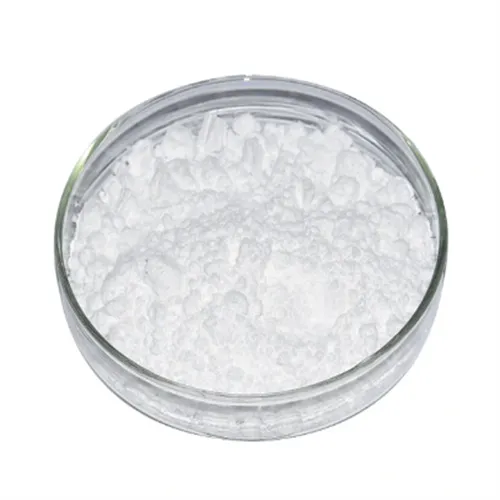Warning: Undefined array key "title" in /home/www/wwwroot/HTML/www.exportstart.com/wp-content/themes/1198/header.php on line 6
Warning: Undefined array key "file" in /home/www/wwwroot/HTML/www.exportstart.com/wp-content/themes/1198/header.php on line 7
Warning: Undefined array key "title" in /home/www/wwwroot/HTML/www.exportstart.com/wp-content/themes/1198/header.php on line 7
Warning: Undefined array key "title" in /home/www/wwwroot/HTML/www.exportstart.com/wp-content/themes/1198/header.php on line 7
- Afrikaans
- Albanian
- Amharic
- Arabic
- Armenian
- Azerbaijani
- Basque
- Belarusian
- Bengali
- Bosnian
- Bulgarian
- Catalan
- Cebuano
- China
- China (Taiwan)
- Corsican
- Croatian
- Czech
- Danish
- Dutch
- English
- Esperanto
- Estonian
- Finnish
- French
- Frisian
- Galician
- Georgian
- German
- Greek
- Gujarati
- Haitian Creole
- hausa
- hawaiian
- Hebrew
- Hindi
- Miao
- Hungarian
- Icelandic
- igbo
- Indonesian
- irish
- Italian
- Japanese
- Javanese
- Kannada
- kazakh
- Khmer
- Rwandese
- Korean
- Kurdish
- Kyrgyz
- Lao
- Latin
- Latvian
- Lithuanian
- Luxembourgish
- Macedonian
- Malgashi
- Malay
- Malayalam
- Maltese
- Maori
- Marathi
- Mongolian
- Myanmar
- Nepali
- Norwegian
- Norwegian
- Occitan
- Pashto
- Persian
- Polish
- Portuguese
- Punjabi
- Romanian
- Russian
- Samoan
- Scottish Gaelic
- Serbian
- Sesotho
- Shona
- Sindhi
- Sinhala
- Slovak
- Slovenian
- Somali
- Spanish
- Sundanese
- Swahili
- Swedish
- Tagalog
- Tajik
- Tamil
- Tatar
- Telugu
- Thai
- Turkish
- Turkmen
- Ukrainian
- Urdu
- Uighur
- Uzbek
- Vietnamese
- Welsh
- Bantu
- Yiddish
- Yoruba
- Zulu
Oct . 22, 2024 12:22 Back to list
Exploring Alternatives to Aspartame for Healthier Sweetening Options
Exploring Aspartame Substitutes A Comprehensive Guide
In recent years, the use of artificial sweeteners has become a common practice, especially among those seeking to reduce their sugar intake or manage their weight. Aspartame, one of the most popular low-calorie sweeteners, has been the subject of extensive research and debate regarding its safety and health effects. Consequently, many consumers are now looking for aspartame substitutes that not only satisfy their sweet tooth but also align with their dietary preferences and health goals.
Understanding Aspartame
Aspartame is an artificial sweetener approximately 200 times sweeter than sucrose (table sugar). It is widely used in various food and beverage products, including diet sodas, sugar-free desserts, and low-calorie snacks. While it has been deemed safe for consumption by regulatory agencies, including the FDA and EFSA, some consumers remain skeptical due to concerns over potential health risks, including headaches, allergic reactions, and associations with certain health conditions.
Why Seek Substitutes?
The search for aspartame substitutes arises from several factors. Health-conscious individuals, those with dietary restrictions, and consumers who prefer natural ingredients often seek alternatives to artificial sweeteners due to perceived health risks or sensitivity to aspartame. Additionally, the growing demand for clean-label products—those with recognizable and simple ingredients—has spurred interest in more natural sweetening options.
Popular Aspartame Substitutes
aspartame substitute

1. Stevia Derived from the leaves of the Stevia rebaudiana plant, stevia is a natural sweetener that is calorie-free and has gained immense popularity as a sugar substitute. It is known for its pleasant sweetness without harming blood sugar levels, making it suitable for diabetics and those on a low-calorie diet. Its strong flavor profile sometimes requires careful formulation to avoid bitterness in certain recipes.
2. Sucralose This artificial sweetener, marketed as Splenda, is made from sugar through a process that selectively chlorinates the sugar molecule. Sucralose is approximately 600 times sweeter than sugar and is often used in cooking and baking due to its heat-stability. While it shares some similarities with aspartame, sucralose has a more consistent flavor profile and is less likely to create aftertastes.
3. Erythritol A sugar alcohol found naturally in fruits, erythritol is another popular low-calorie sweetener. It contains about 0.24 calories per gram and is known for its sugar-like texture and taste. What sets erythritol apart is that it does not cause a spike in blood sugar levels, making it an attractive option for diabetics. However, excessive consumption can lead to digestive discomfort in some individuals.
4. Monk Fruit Extract This natural sweetener, derived from monk fruit (also known as luo han guo), is another compelling alternative to aspartame. It is estimated to be 100-250 times sweeter than sugar and contains zero calories. Monk fruit extract is gaining popularity not only for its sweetness but also for its potential antioxidant properties.
5. Agave Nectar While not as low in calories as some other alternatives, agave nectar is favored for its low glycemic index. It’s derived from the agave plant and has a sweet, syrupy consistency. However, it should be consumed in moderation, as it is high in fructose, which can pose health risks when consumed excessively.
Conclusion
In a world that is increasingly aware of health, wellness, and dietary choices, the search for aspartame substitutes reflects a broader trend toward natural and healthier living. Options like stevia, sucralose, erythritol, monk fruit extract, and agave nectar provide consumers various ways to enjoy sweetness without compromising their health goals. As with any dietary change, it is essential to consider personal preferences and health needs, ensuring that the chosen substitute aligns with one's lifestyle and health objectives.
Latest news
-
Certifications for Vegetarian and Xanthan Gum Vegetarian
NewsJun.17,2025
-
Sustainability Trends Reshaping the SLES N70 Market
NewsJun.17,2025
-
Propylene Glycol Use in Vaccines: Balancing Function and Perception
NewsJun.17,2025
-
Petroleum Jelly in Skincare: Balancing Benefits and Backlash
NewsJun.17,2025
-
Energy Price Volatility and Ripple Effect on Caprolactam Markets
NewsJun.17,2025
-
Spectroscopic Techniques for Adipic Acid Molecular Weight
NewsJun.17,2025

